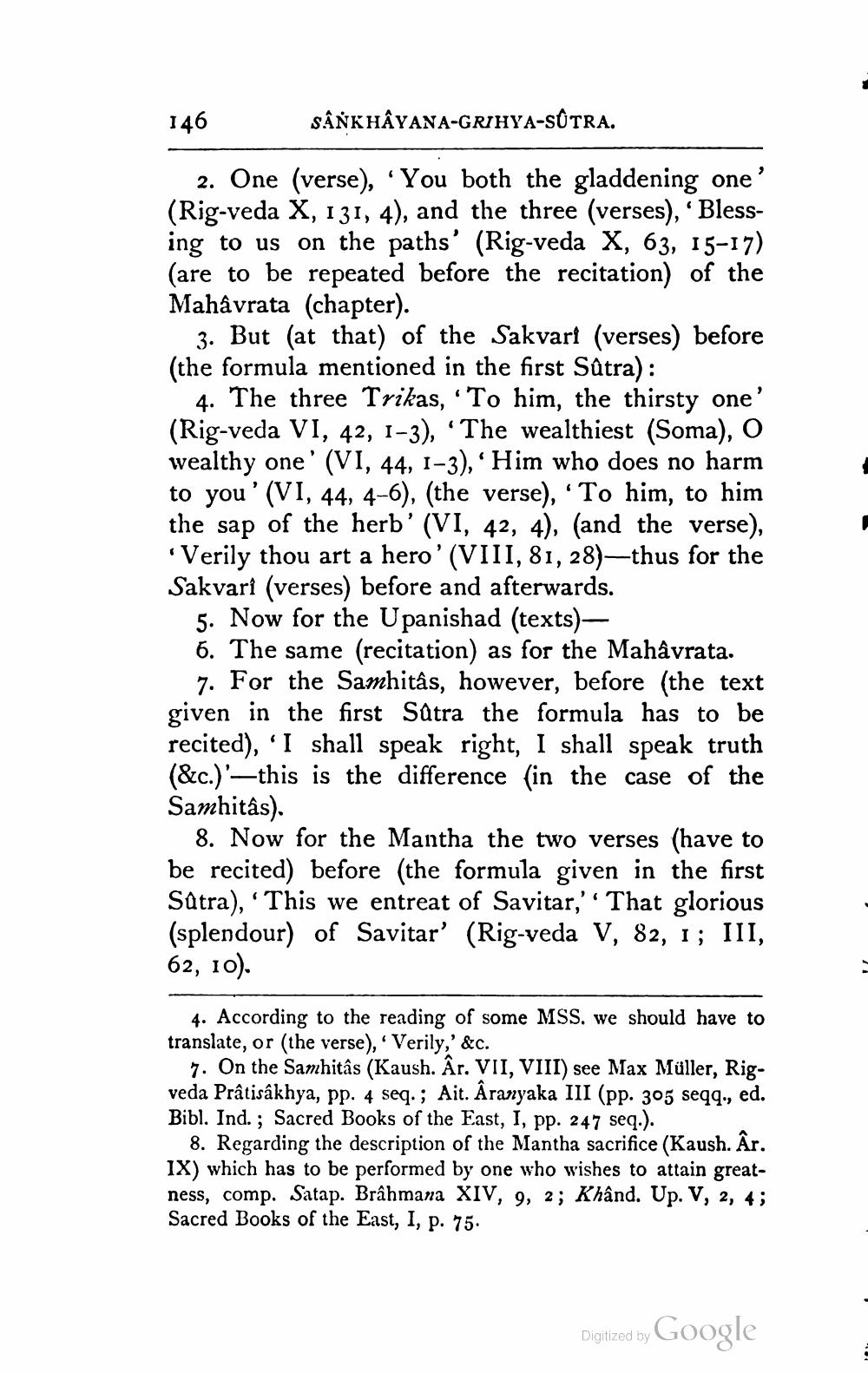________________
146
SÂŃKHÂYANA-GRIHYA-SUTRA.
2. One (verse), “You both the gladdening one' (Rig-veda X, 131, 4), and the three (verses), Blessing to us on the paths' (Rig-veda X, 63, 15-17) (are to be repeated before the recitation of the Mahâvrata (chapter).
3. But (at that) of the Sakvart (verses) before (the formula mentioned in the first Satra):
4. The three Trikas, ‘To him, the thirsty one' (Rig-veda VI, 42, 1-3), 'The wealthiest (Soma), O wealthy one' (VI, 44, 1-3),' Him who does no harm to you' (VI, 44, 4-6), (the verse), ‘To him, to him the sap of the herb' (VI, 42, 4), (and the verse),
Verily thou art a hero' (VIII, 81, 28)—thus for the Sakvari (verses) before and afterwards.
5. Now for the Upanishad (texts) — 6. The same (recitation) as for the Mahâvrata.
7. For the Samhitâs, however, before the text given in the first Sutra the formula has to be recited), 'I shall speak right, I shall speak truth (&c.)'—this is the difference in the case of the Samhitas).
8. Now for the Mantha the two verses (have to be recited) before (the formula given in the first Satra), 'This we entreat of Savitar,'' That glorious (splendour) of Savitar' (Rig-veda V, 82, 1; III, 62, 10).
4. According to the reading of some MSS. we should have to translate, or (the verse),. Verily,' &c.
7. On the Samhitâs (Kaush. Âr. VII, VIII) see Max Müller, Rigveda Prâtisâkhya, pp. 4 seq.; Ait. Aranyaka III (pp. 305 seqq., ed. Bibl. Ind. ; Sacred Books of the East, I, pp. 247 seq.).
8. Regarding the description of the Mantha sacrifice (Kaush. Âr. IX) which has to be performed by one who wishes to attain greatness, comp. Satap. Brâhmana XIV, 9, 2; Khând. Up. V, 2, 4; Sacred Books of the East, I, p. 75.
Digitized by Google




